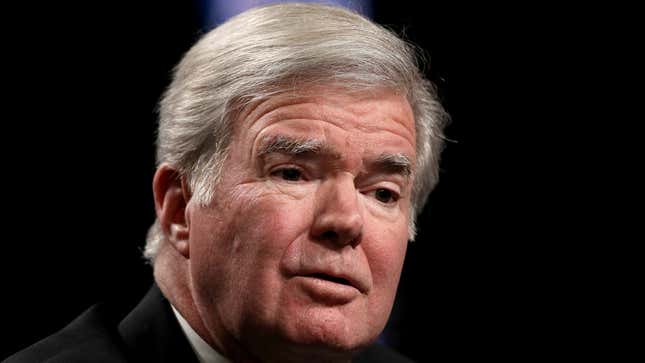
California Governor Gavin Newsom is expected to sign the state’s Fair Pay to Play Act into law today. That bill, which passed the state senate with overwhelming support earlier this month, forbids the state’s public colleges and universities from revoking the eligibility or scholarships of athletes who sign endorsement deals, hire agents, or otherwise make money off of the use of their names and likenesses.
This is a big moment in the longstanding fight to break up the NCAA’s amateurism scam—particularly if the bill’s passage inspires other states to follow suit. LeBron James is pumped!
However, please do pause your touchdown dances for the moment. This is not the definitive victory for fair pay that the headlines may make it seem.
For one thing, while S.B. 206, as it’s formally known, does allow college athletes to make money off of the use of their name and likeness while retaining their eligibility, it doesn’t force universities to actually pay them, directly, for the work they do. Under the law, a football player at UCLA may be able to monetize a YouTube channel or hire an agent without fear of losing his scholarship, but when he reports to practice the following day, he will be toiling for precisely zero dollars per hour of work. A bill that would force college athletic departments to cut actual direct paychecks to athletes has been proposed for New York state’s 2020 legislative session, which opens in January. That’s a much, much bigger fight, with a much murkier prognosis.
Secondly, California’s bill isn’t due to take effect until Jan. 1, 2023. That’s over three years for the NCAA, as well as California’s rich and powerful institutions (most notably including Stanford, USC, and the vast University of California system, all of whom opposed the bill [CORRECTION: This sentence initially referred to Stanford and USC as “public”; they did oppose the bill, but they are private institutions, and I’m an idiot]), to challenge the law in court, lobby for its reversal (the legislature’s up for election in 2020 and the bill’s opponents have no shortage of pilfered cash to donate), devise ways to punish California for having passed it, and devise ways to circumvent it. You can be sure there will be well-funded attempts at all of the above. It’s entirely possible this bill won’t ever take effect, and thus never will accomplish anything more tangible than netting some very good press for some California politicians.
In the meantime, the very least that California has accomplished is demonstrating that this can be done on a state level, and perhaps creating some running room for less powerful states that want to take similar measures. Which isn’t nothing! Earlier this month, in the wake of California’s Senate passing the Fair Pay to Play Act, Democratic legislators in brick-red South Carolina announced plans to file a bill similar to New York’s, requiring state schools to pay a (shamefully tiny) stipend to big-sport athletes and allow those athletes to profit off their names and likenesses.
This is progress! Progress is good. But the fight continues.